Iran declares end to 12-day 'Israel-imposed' war
Israel eases war-time curbs on gatherings, work, and schools after ceasefire
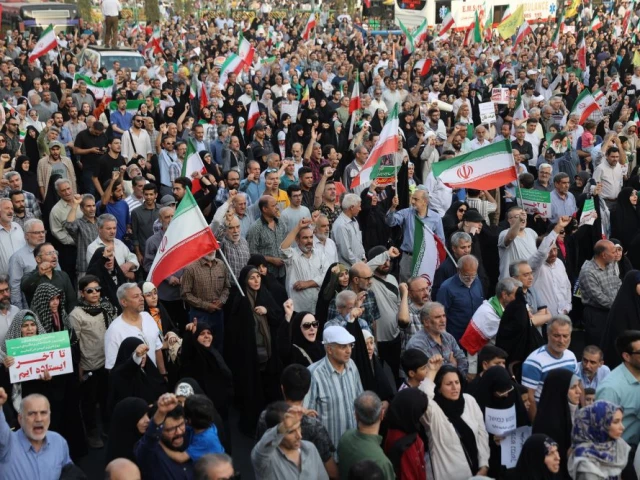
Iranian President Masoud Pezeshkian announced the "end of the 12-day war" imposed by Israel, in a message to the nation carried by the official IRNA news agency on Tuesday.
"Today, after the heroic resistance of our great nation, whose determination makes history, we are witnessing the establishment of a truce and the ending of this 12-day war imposed by the adventurism and provocation" of Israel, Pezeshkian said.
Pezeshkian also said Tehran was ready to resolve issues with the US based on international frameworks, in comments in a phone call with Saudi Crown Prince Mohammed bin Salman, Iran's official news agency IRNA reported on Tuesday.
The call comes a day after US President Donald Trump announced a ceasefire deal between Israel and Iran.
Qatar's prime minister persuaded Iran to agree to a US-proposed ceasefire with Israel after Iranian missiles targeted an American base near Doha, a source with knowledge of the talks said on Tuesday.
Prime Minister Sheikh Mohammed bin Abdulrahman Al-Thani spoke to the Iranians at Washington's request following Monday's unprecedented attack on Qatari soil, the source told AFP.
Qatar has good ties with both Iran and the United States and had been pushing, alongside other Gulf states including Oman, for a diplomatic solution to the conflict.
"In the aftermath of the strikes on Al Udeid (military base), President (Donald) Trump told the Emir of Qatar Israel had signed off on an American ceasefire proposal," the source said.
"The US president then asked that Qatar help get Iran to agree to a deal," the source added, requesting anonymity to discuss sensitive matters.
US Vice President JD Vance spoke to the Qatari prime minister "who persuaded Iran to agree to the proposal in a call with the Iranians," the source said.
Israel on Tuesday said it had agreed to the ceasefire, which is now "in effect", according to Trump.
Iran has yet to formally accept the truce, but its top security body said the Islamic republic's forces had "compelled" Israel to "unilaterally" cease fire.
Iran's attack on Al Udeid, the biggest US military facility in the Middle East, was in retaliation for US strikes on nuclear sites in Iran. It did not cause any casualties.
At a press conference on Tuesday, Sheikh Mohammed confirmed that Qatar "initiated communication" with Iran at America's prompting.
The prime minister described the attack as "unacceptable" but said Qatar's response would be "diplomatic and legal". "The attack on the State of Qatar is an unacceptable act, especially that the State of Qatar has been making great diplomatic efforts in order to have the situation de-escalated," he said.
Iran's foreign minister said Tuesday the strikes were targeting Al Udeid, not Qatar, and were an act of "self-defence".
Qatar's foreign ministry welcomed the ceasefire, calling it a "meaningful step toward adopting dialogue and diplomacy to resolve conflicts in the region".
Sheikh Mohammed also urged Washington and Tehran to resume Oman-mediated talks on Iran's nuclear programme that were frozen when Israel began striking Iran.
He added that Qatar, a key mediator between Israel and Hamas, was working on resuming talks for a fresh ceasefire in the Gaza war.
"We are still continuing our efforts, and God willing, we will try to look for an opportunity during the next two days for having indirect negotiations between the two parties," he said.
"We hope that the Israeli side will not exploit the ceasefire with Iran to unleash what it wants to unleash on Gaza and continue its bombing of" the strip, Sheikh Mohammed added.
Meanwhile, Pezeshkian said that his country was not seeking nuclear weapons but would continue to defend its "legitimate rights" in the peaceful use of nuclear energy.
As a fragile ceasefire with Israel took hold after 12 days of fighting that also included US strikes, he told his counterpart from the United Arab Emirates that the two countries "cannot impose unjust aspirations by force".
"We expect you to explain to them, in your dealings with the United States, that the Islamic Republic of Iran is only seeking to assert its legitimate rights," Pezeshkian said during a call with UAE President Mohammed bin Zayed.
"It has never sought to acquire nuclear weapons and does not seek them," he was quoted as saying by the official IRNA news agency, adding that Iran was "ready to resolve the issues... at the negotiating table".
The war between the longtime regional foes saw Israel strike Iranian nuclear facilities and killed nuclear scientists and the country's top military brass.
On Sunday, Israel's ally the United States launched unprecedented strikes of its own on Iranian nuclear facilities at Fordo, Isfahan and Natanz.
The fighting broke out two days before Tehran and Washington were set to hold a new round of talks over Iran's nuclear programme.
Israel lifts domestic restrictions linked to war
Israel's military said Tuesday it was lifting restrictions on public gatherings, workplaces and education resulting from the war with Iran after a ceasefire brought a fragile end to 12 days of conflict.
"Following the situational assessment and the approval of Minister of Defence, Israel Katz, it was determined that as of today (Tuesday), at 20:00... all areas of the country will shift to full activity without restriction," the military said in a statement, adding that the guidelines will be effective until Thursday evening.

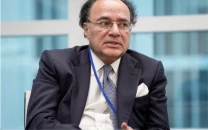


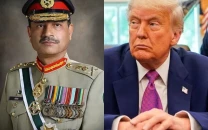
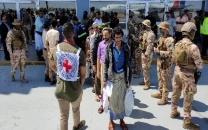
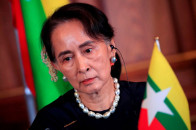



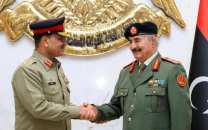


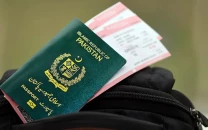






COMMENTS
Comments are moderated and generally will be posted if they are on-topic and not abusive.
For more information, please see our Comments FAQ